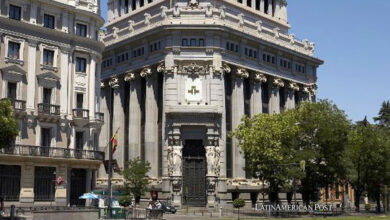The Brexit Agreement: a triumph for Boris Johnson
After almost three years of failed talks, the British Parliament approved the prime minister's plan to achieve Brexit.

Boris Johnson, Prime Minister of the United Kingdom. / Photo: AP
LatinAmerican Post | Juliana Suárez
Escucha este artículo
Leer en español: El acuerdo del Brexit: un triunfo de Boris Johnson
Last Friday, December 20, the new Parliament of the United Kingdom approved by a majority the agreement that Boris Johnson, the Prime Minister, had presented to finalize the departure of the European Union. This means that Brexit will begin on January 31, 2020.
The votes were 358 in favor and 234 against, a result that was given in such a way thanks to the parliamentary elections that were held days before at Johnson's request to have a new parliament.
The United Kingdom's exit from the European Union has had different obstacles since it won the citizenship consultation, in June 2016. One sector of the Parliament has supported the exit, while another has prevented it, so repeatedly the way in which this fact will happen has been on the tightrope. For some the discussion is whether or not the United Kingdom should leave the EU, while for others the decision is already taken, and what needs to be seen is what will be the agreement that will precede the exit.
After a controversial start of Boris Johnson as prime minister, and a withdrawal also full of conflicts such as that of Theresa May earlier in 2019, the possible exit from the EU was increasingly distant. On several occasions the decision had been extended so as not to have to leave without an agreement and the parliamentarians against it had been charged with preventing progress, in search of a new agreement or even the total suspension of departure, which was the least viable option .
Read also: The challenges of the new British parliament
However, after a few months as PM, Johnson's triumph was seen coming when the elections threw the Conservative Party as the big winner, which won 364 seats against the 203 seats with which the Labor Party stayed. Although other minority fronts do not support Brexit, such as the Scottish National Party (SNP), this was not enough to curb the agreement.
According to the BBC, "the parliamentarians also backed the calendar that limits the debate on the bill in the House of Commons to three days, after the Christmas break: January 7, 8 and 9." This would mean that by the stipulated date, January 31, the law would be approved in its entirety, also passing through the House of Lords.
Once the approval of the bill is achieved, the process in which EU members will also have to meet will begin. Subsequently, the total output will last approximately one year. In that exchange process, among other things, the United Kingdom must change its currency, which it had already begun to produce.
Meanwhile, the opposition has been outraged by the vote, because, although these results were already expected, it criticizes that the government took away some concessions that had been achieved previously.





